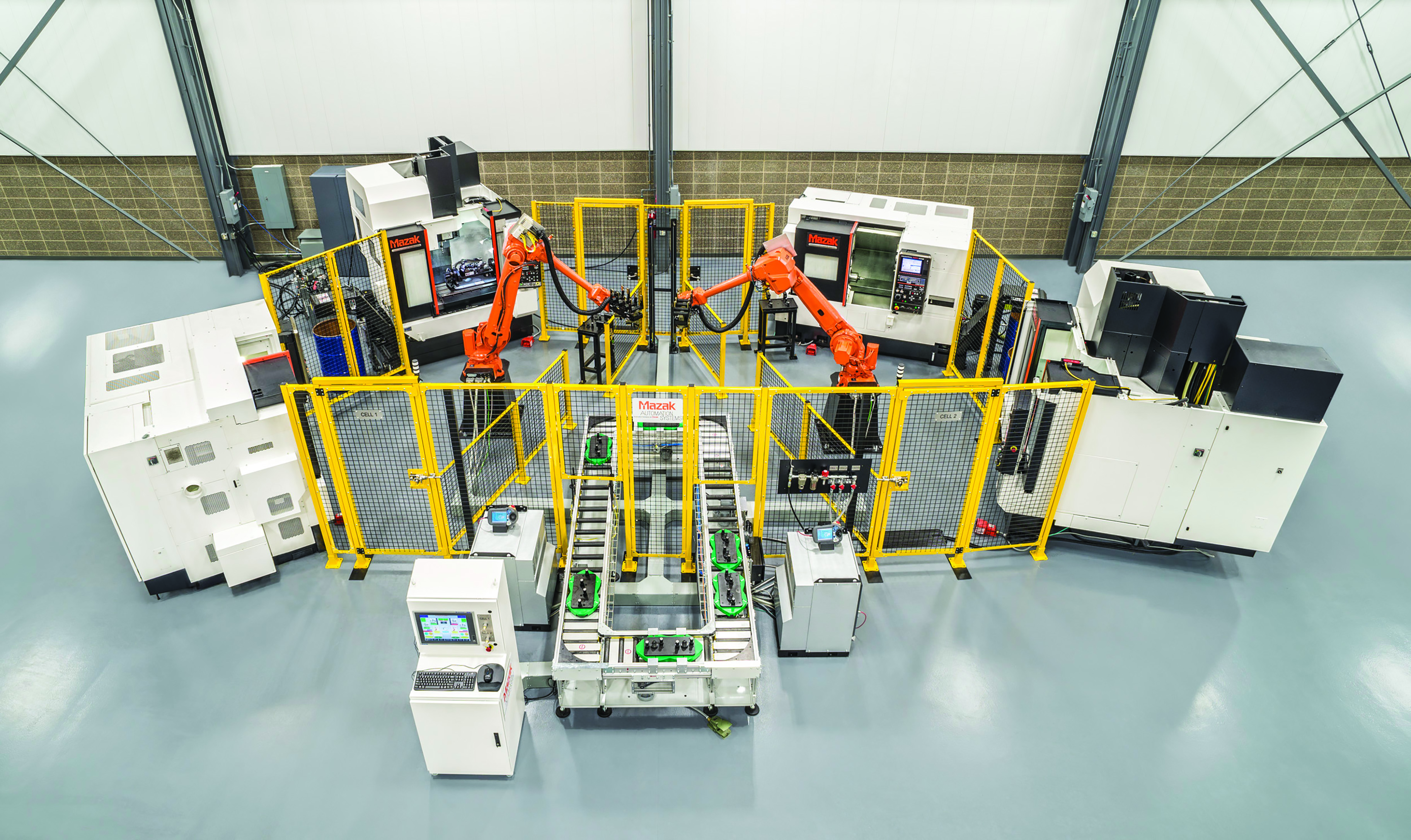
Every month in 2020 has required another round of reinventing how shops do business – but in the fast-paced world of manufacturing, this isn’t anything new. Technological advancements, product innovations, scientific breakthroughs and shifting supply chains are among a few of the reasons why manufacturers must constantly improve to keep ahead of the competition, especially when the competitive landscape now spans the entire globe. Flexibility is more crucial than ever before, and many shops are discovering a simple fact: with automation comes agility.
In a 2018 report, “The Five Trademarks of Agile Organizations,” McKinsey & Company identified four drivers of transformation in the digital age: a “quickly evolving environment,” the “constant introduction of disruptive technology,” “accelerating digitization and democratization of information” and “the new war for talent.” Companies that succeeded in this environment did so through increased business agility and had many factors in common – a core strategic vision, for example, or a community-driven, well-organized structure for human resources. But in manufacturing, the skills gap looms large and solutions for the problem are urgently required in numerous industries.
Naturally, shops have increasingly turned to automation, and the trend is likely to continue. In Raconteur’s “Age of Automation” infographic, this is illustrated through several graphs, and the data doesn’t lie. Robot prices have been declining as labor costs have risen, and the majority of even the smallest job shops have started automating parts of their workflow. While the US lags far behind countries like South Korea and Singapore in terms of automation deployment, the trends remain the same worldwide. As the infographic suggests, the Age of Automation truly has arrived.
But automation does more than save on costs while freeing operators and engineers from repetitive manual labor. Modern robots, loaders/unloaders and other solutions enable shops to respond very quickly to production changes. As noted by the National Institute of Standards and Technology (NIST) on its Manufacturing Innovation Blog, for example, collaborative robots are an excellent option for medium-sized shops to maximize the productivity of operators.
For smaller shops that handle a wide variety of parts on a daily basis, job changeovers remain the largest productivity killer. Shops that produce reoccurring batches of low-to-medium-volume jobs for a high total volume of jobs per year are particularly well-suited for automation, as it’s much easier to design fully automated workflows. But automation solutions like bar feeders or gantry loaders can be equally beneficial, even in fully high-mix/low-volume (HMLV) environments. Simply feeding bar stock or loading workpieces can drive down changeover times, and handling peripheral processes during automated part loading/unloading or using a second pallet to set up jobs while another workpiece is machined can push productivity even further.
To maximize future agility, manufacturers should also select equipment with future expansion in mind. Many automation systems are scalable, like Mazak’s Multi-Pallet Pool (MPP), PALLETECH and MAZATEC SMS solutions. These kinds of palletized systems are ideal for manufacturers who want to achieve unmanned lights-out production despite a high mix of smaller jobs. With solutions ranging from six pallets to hundreds, it’s easy to find the correct scale without missing out on future opportunities for expansion and increased production agility.
For manufacturers, agility is more important than ever – and automation is one of the best ways to achieve it. To learn more about how Mazak can help you automate your part-production operations, visit our Automation Solutions page.
